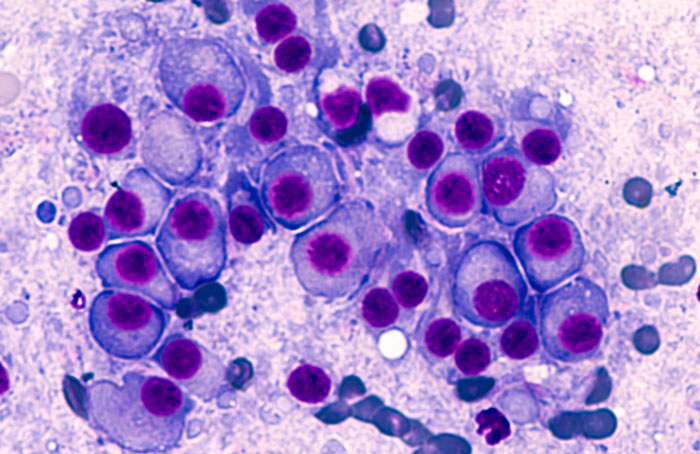Revolade shows long-term disease control for immune thrombocytopenia
Posted: 18 October 2017 | Dr Zara Kassam (European Pharmaceutical Review) | No comments yet
Novartis has announced long-term study results supporting the positive safety and efficacy of Revolade in adults with chronic/persistent immune thrombocytopenia…


Novartis has announced long-term study results supporting the positive safety and efficacy of Revolade (eltrombopag) in adults with chronic/persistent immune thrombocytopenia (ITP).
The EXTEND study found that a majority of patients maintained a substantial clinical response and many no longer needed concomitant ITP medications. The research evaluated patients for up to 8 years of continuous treatment.
The goal of treatment in chronic/persistent ITP is to maintain a safe platelet count that reduces the risk of bleeding.
“The EXTEND data published in Blood validate Revolade as an important oral treatment option that, by often increasing platelet counts, significantly decreased bleeding rates and reduced the need for concurrent therapies in certain patients with chronic/persistent immune thrombocytopenia,” said lead author Dr James Bussel, Professor Emeritus of Pediatrics at Weill Cornell Medicine. “With this information, physicians can better optimise long-term disease management for appropriate patients living with this chronic disease.”
The EXTEND results reinforce Revolade as a trusted treatment option
The efficacy results of EXTEND demonstrated that median platelet counts were elevated to >=50×109/L within two weeks of Revolade treatment, with median platelet counts >50×109/L maintained for more than four years.
Post-baseline, overall bleeding rates declined and the majority of bleeding that occurred during the study was Grade 1 or 2 according to the World Health Organization bleeding scale. Some patients (39%) were capable of reducing or permanently stopping one or more concomitant ITP medications without the need for rescue therapy, many of which sustained reduction for at least 24 weeks.
“We conducted this trial, the largest of its kind in adult patients, to ensure that clinicians have comprehensive data on hand as they work with their ITP patients to make treatment decisions,” said Dr Vas Narasimhan, Global Head Drug Development and Chief Medical Officer, Novartis. “The EXTEND results reinforce Revolade as a trusted treatment option that can be used over the long-term for those living with this chronic and rare disease.”
Overall, the safety profile of Revolade was consistent with previous studies. The most common adverse events were a headache (28%), nasopharyngitis (25%) and upper respiratory tract infection (23%). During treatment on EXTEND, 6% of patients experienced thromboembolic events.
About Chronic/Persistent ITP
Chronic/persistent ITP is a rare and potentially serious blood disorder that is characterised by the improper functioning or destruction of platelets. People who have ITP often have purple bruises or tiny red or purple dots on the skin. They also display symptoms such as nosebleeds, bleeding from the gums during dental work, or another bleeding that is hard to stop. The potential for drops in platelet counts may also cause emotional distress and may result in a hindered ability to do work or embarrassment due to visible symptoms.
ITP is classified by duration from diagnosis into acute (0-3 months), persistent (3-12 months duration) and chronic (>12 months duration). Chronic/persistent ITP is more likely to occur in adults, and women are affected two to three times more often than men.
The goal of treatment in chronic/persistent ITP is to maintain a safe platelet count that reduces the risk of bleeding. Treatment is determined by the severity of the symptoms. In most cases, drugs that alter the immune system’s attack on the platelets are prescribed to help manage bleeding and bruising in adults.
Please see full EU Summary of Product Characteristics for Revolade (eltrombopag).
Related topics
Drug Development, Drug Targets, Research & Development (R&D)









